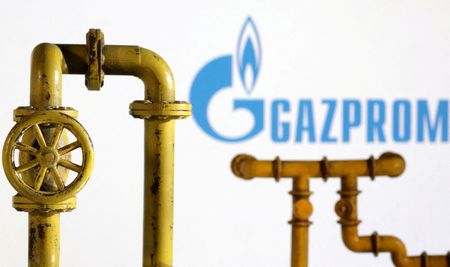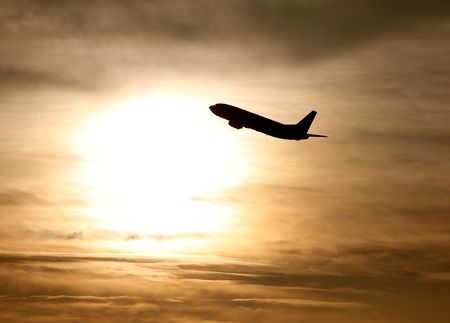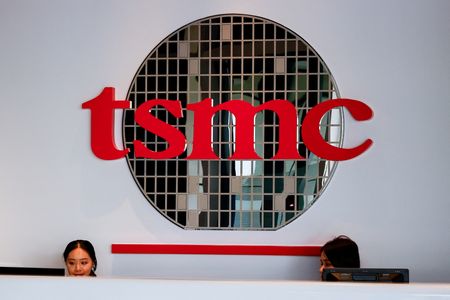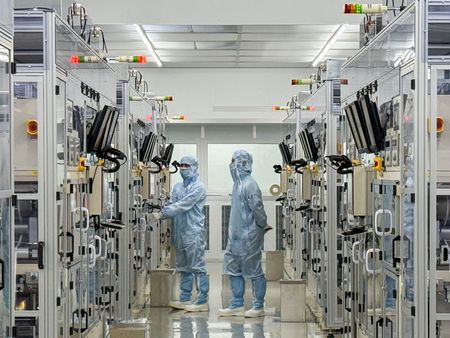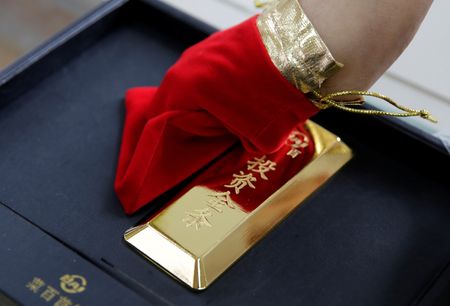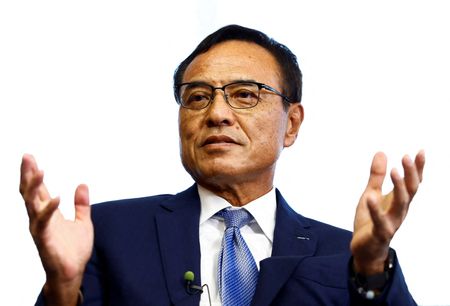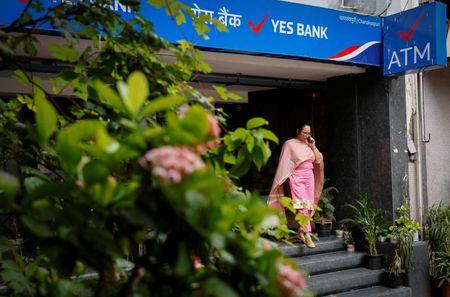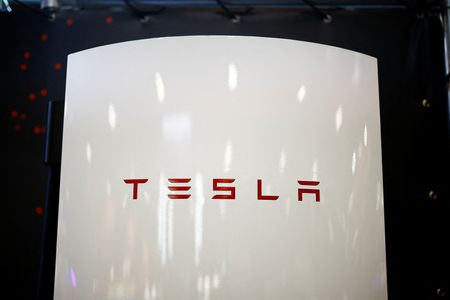By Vladimir Soldatkin and Lidia Kelly
MOSCOW (Reuters) -Russia and China gave their blessing to the Power of Siberia 2 pipeline but have yet to agree on pricing, Gazprom said on Tuesday, underscoring President Xi Jinping’s disregard for Western demands that he row back from a deepening partnership with Moscow.
The pipeline, which could one day deliver an additional 50 billion cubic metres (bcm) of gas per year to China through Mongolia from the Arctic gas fields of Yamal, hands the world’s largest energy consumer greater options to hedge against future reliance on U.S. liquefied natural gas.
Gazprom CEO Alexei Miller’s announcement of a “legally binding memorandum” on building Power of Siberia 2 came after Xi, Russian President Vladimir Putin and India’s Narendra Modi smiled and held hands together in China, and after joint Xi-Putin talks in Beijing and a trilateral meeting with Mongolia’s leader.
Miller said that an agreement had been reached to increase supplies via the existing Power of Siberia pipeline, which runs from Eastern Siberia to China, to 44 billion cubic metres (bcm) a year from 38 bcm.
But the price of gas supplied via the new pipeline – one of the key factors for understanding the cost of building the pipeline and how those costs will be shared amongst the parties involved – will be agreed separately, Miller was quoted as saying.
“Announcements about Power of Siberia 2 are a huge turning point in the geopolitics of energy,” said Michal Meidan, head of China Energy Research at the Oxford Institute for Energy Studies.
“The message is: China is no longer even pretending to comply with U.S. sanctions or care about what the West thinks. And it’s not alone.”
China, which has recently taken LNG cargoes from Russia’s sanctioned LNG 2 project, is showing it can resist Western pressure to isolate Moscow but the lack of progress on pricing indicates that he is also demanding steep discounts from Russia.
‘NO LIMITS’
Putin and Xi, who have both pushed back against the perceived humiliations of the 1991 collapse of the Soviet Union and centuries of European colonial dominance of China, say the world is entering a new era with the West in decline.
The United States casts China as its biggest competitor and Russia as its biggest nation-state threat, though U.S. President Donald Trump has criticised Western moves he thinks have pushed Moscow and Beijing closer.
The so-called “no limits” partnership between China and Russia, the world’s biggest producer of natural resources, has strengthened since the West imposed sanctions to punish Russia for the war in Ukraine.
Since losing a lucrative chunk of the European gas market, Russia has pivoted towards China. Gazprom has been seeking an agreement for years on the Power of Siberia 2 pipeline.
“The big deal is finally under way,” said Kirill Babaev, head of the China and Contemporary Asia Institute in Moscow, a think-tank that advises the Russian government on China.
“Even though we do not know the parameters for the price and volumes, nor the subcontractors of the pipeline, the political negotiations are now over and giving way to commercial tasks which will definitely bring the result due to a blessing received from the three leaders of Russia, Mongolia and China.”
Much remains unclear: pricing, building and timeframes were not announced – and at least one top Russian energy executive sees China moving towards energy independence with vast renewable and nuclear energy projects.
The price, Miller said, would be lower than the price charged by Gazprom to European buyers due to the vast distances and terrain over which pipelines had to be built.
The Kremlin said that 22 agreements had been signed during Chinese talks, including a deal on strategic cooperation between Gazprom and China National Petroleum Corporation, but it gave no details. Nor did China.
VAST PIPELINE
Building a gas pipeline from the vast Bovanenkovo and Kharasavey gas fields of northern Russia across the wilderness of Siberia to Mongolia and then to China would be the world’s biggest and most capital-intensive gas project, Miller said.
China is Russia’s biggest trading partner, the biggest purchaser of Russian crude and Russian gas, the second-biggest purchaser of Russian coal and the third-biggest purchaser of Russian LNG, according to the Kremlin.
Gazprom supplies natural gas to China through a 3,000 km (1,865 mile) pipeline called Power of Siberia under a 30-year, $400 billion deal launched at the end of 2019 and supplies are expected to reach the planned capacity of 38 bcm this year.
Miller said there had also been an agreement to increase the gas China buys through a pipeline from Sakhalin Island in Russia’s Far East to 12 bcm annually from a prior agreement for 10 bcm.
(Reporting by Lidia Kelly in Melbourne, Vladimir Soldatkin and Gleb Bryanski in Moscow and Colleen Howe in Beijing; Writing by Guy Faulconbridge; editing by Louise Heavens and Sharon Singleton)

